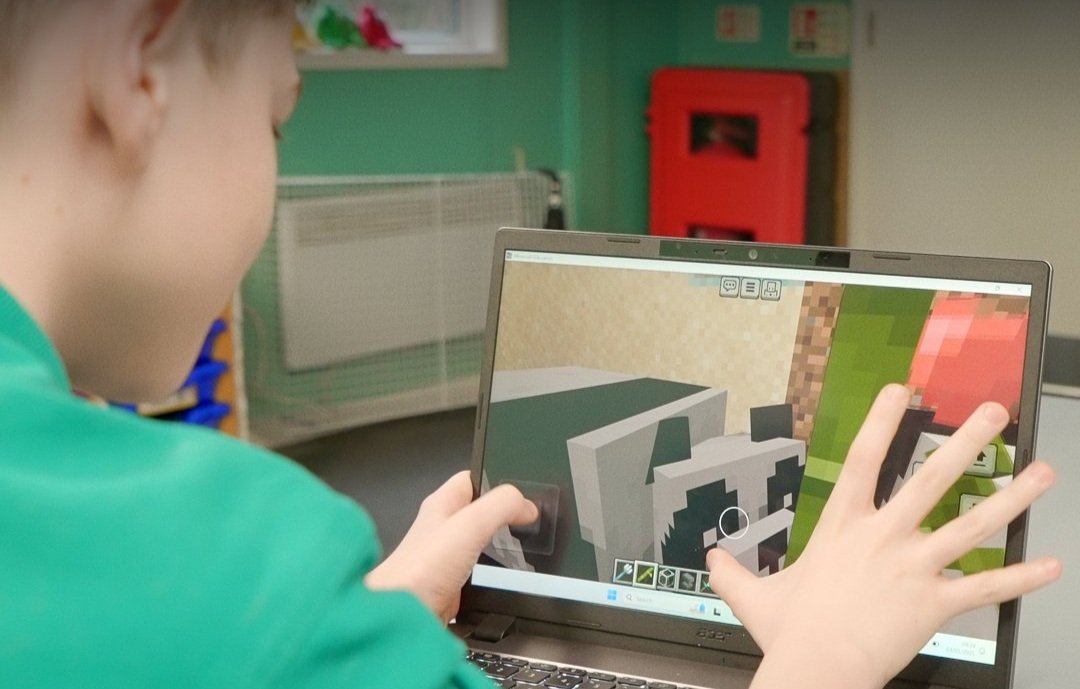Why tech skills should be taught in every classroom
There are many things that should be taught in all schools and, in fact, in all classrooms, and all of them are important for today’s world - and that’s the point.
Just because something wasn’t important not that long ago, and would have been a nice-to-have on the curriculum for the lucky few schools that could achieve it, that doesn’t mean that’s still the case, and the truth is that some subjects are vital, and must be included in all schools for as many pupils as possible.
One of those subjects is technology, and the skills that go with it are crucial to getting on in life and being successful not just in a child’s future career, but in all aspects of their life. If that sounds futuristic, it really shouldn’t - it’s what should be happening right now and, the good news is, in many cases and places, it is.
Teaching tech skills in every classroom isn’t just something that might benefit kids - it’s something that will benefit them, so why not consider the reasons behind it? If it’s not something your school currently puts much emphasis on, now’s the time to make some changes. With that in mind, read on to find out more about why tech skills should be taught in every classroom.
The World Runs On Tech
Just have a think about how important tech is to our everyday lives - you do everything using an app or a computer of some sort, from banking to shopping to running an entire business; tech is the heart of everything. However, in many classrooms the most exciting piece of equipment might be the interactive whiteboard, and that’s just not going to be enough for kids to have learned from by the time they need to go out into the world by themselves.
Luckily, children will often have access to various forms of technology at home, and they’ll have grown up knowing how to use them, but is that enough? With the likes of Apple Watches, they can literally have it with them at all times, strapped to their wrists with Apple Watch Bands. And what about those kids who don’t have the chance to use tech in their own homes? This is why it’s so important to invest in technology for the classroom so children can use it every day and get creative with it when possible.
They need to know more than how to google something; they need to know how tech shapes the world and how they can use it to advance their own lives, and whether that’s coding, graphics, design, video editing, audio production or anything else, if they can learn about it at school, it’s going to help them massively.
Hands-On Learning
Teaching tech in classrooms doesn’t mean giving every child a laptop of tablet and assuming they’ll just be able to get on with things by themselves - some will, but some won’t have any idea what to do, and that’s where teaching and, crucially, hands-on learning, comes into the story. When you’ve got hands-on tech projects, the children will be able to combine creativity, problem-solving, and collaboration, and there are so many ways to do it that everyone is sure to be able to find something that really speaks to them - and when that happens, they’ll be a lot more invested.
Some schools might decide to create a podcast, for example, and that can be an ideal way to delve into technology, but it’s also a good way to work on other skills at the same time. To create a podcast, the students will need to come up with a name, create a website, work on topics, write scripts, do research, conduct interviews, and edit the final results. You could even get them to market the whole thing as well.
And if they’ve got the right equipment to do it well, including a broadcast audio monitor so they can hear every word in perfect clarity, they’ll have gained loads of skills they can use elsewhere. True, they might not go on to be podcast creators and hosts (although some will - why not?), but the skills they’ve picked up will help them in other areas too, so it’s a fantastic idea to bring into the classroom and showcase to the wider school community, or even a wider audience.
Tech Skills Are Life Skills
In the past - within living memory for some, which might be surprising to others - things like typing was a specialized skill that not everyone could do. Now, it’s as essential to everyday life as knowing how to make breakfast or pour a glass or water. In other words, you wouldn’t get very far if you couldn’t do it. So using that logic, it’s highly likely that today’s specialized skills like coding, video editing, app development, and so on, will be the same in the future - they’ll no longer be an extra skill, they’ll be one we all learn as early as possible, and, ideally, in the classroom.
The fact is that tech is everywhere - you really do have to go a long way to get away from it entirely (especially considering you’re probably carrying some kind of device with you all the time), and from medical advancements to entertainment, there’s not a single industry that doesn’t use tech in some way. When we teach kids about tech skills, we’re giving them the opportunity to find a good job, and maybe even be prepared for a job that doesn’t exist yet - and there are many that are going to fall into that category.
Plus, tech skills help with problem-solving, and that’s a massively important life skill to have. From debugging a code to working out why the wifi has gone down (again!), you’ve often got to get creative when it comes to dealing with tech, and these challenging, sometimes frustrating, puzzles are a big part of life (and the fact that they’re so satisfying when they’re solved is a definite bonus).
Another life skill that tech can help with is building confidence - when their code works or their podcast goes out to the world, it’s a small but significant step forward, and the child involved will feel great about it, and their confidence will be boosted, helping them build a good level of self-belief to ensure they do what they want to do in life (or at least give everything a good try).
It Makes Learning Fun
Not everyone enjoys school, and that’s a shame because when kids don’t enjoy school, they’ll miss out on skills and learning. There are many reasons why school might not appeal, and not all of them can be solved by adding tech teaching into the classroom, but if it’s a case of teaching feeling boring, then tech can definitely help - it basically makes learning fun.
Not only can teaching how tech works and how it can be used in the present and in the future be exciting, but it can also help to teach other subjects that can be a little dry otherwise, depending on how they’re brought to life. Instead of reading from a history book or using a PowerPoint presentation with some standard slides on it, what about using virtual reality to give the kids the chance to walk through Ancient Rome or Pompeii after the eruption? Or what about a math class where robots can be programmed to solve equations? The point is you don’t want to have tech for tech’s sake; you want to have tech that makes learning fun and gets the kids engaged.
And if things go wrong, as they sometimes will, that’s a good learning opportunity as well. Tech isn’t perfect and, no matter how hard people try, it probably never will be. So, understanding that things can go wrong and knowing how to solve those issues is just as important as using the tech in the first place.
Are Kids On Screens Too Much?
One issue that parents, and some teachers, might have about all this is that we’re told kids shouldn’t be on screens too much - but all this tech in classrooms focuses on screens a lot of the time. That’s a fair argument, but it’s not something you need to worry about.
There’s really a big difference between passively scrolling through mindless videos on social media and actively creating something or learning something, and that’s the point to remember. And since so many careers are going to be screen-based, it doesn’t make sense to limit that screen time in schools; it makes sense to ensure that the time isn’t wasted and that useful things are learned.
Final Thoughts
Teach tech in every classroom shouldn’t be a bonus or a luxury - it should be something every child has access to. Unfortunately, we’re not quite at the stage where we can guarantee this kind of education for all, but we’re getting closer, and the more technology we can include in schools, and the more useful skills we can teach through it, the better equipped the next generation will be to take on the challenges of the modern world and not just get through it, but succeed.





















